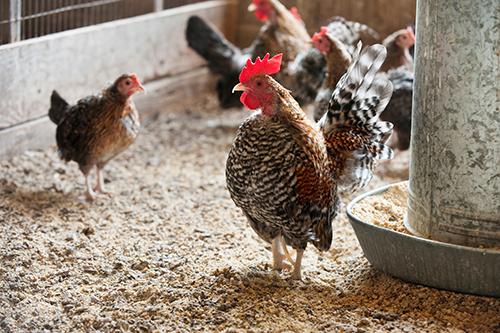MSU, UNG collaboration launches 2+2 poultry science program
Contact: Lily Grado
STARKVILLE, Miss.—Mississippi State University and the University of North Georgia are expanding educational opportunities in poultry science and opening new doors for graduates in a field needing young professionals.

MSU President Mark E. Keenum and UNG Provost Chaudron Gille recently signed a memorandum of agreement which states students who have earned an appropriate associate degree from UNG’s agriculture-poultry science program may transfer their coursework seamlessly to MSU’s undergraduate poultry science program—one of just six U.S. universities offering degrees in poultry science. It allows students to complete their first two years of study in agriculture at UNG and earn an associate’s degree before transferring to MSU to finish their final two years and earn a poultry science bachelor’s degree. The collaboration marks MSU’s first 2+2 poultry science program with an out-of-state university.
“Mississippi State is a national leader in poultry science education and research and one of the most transfer-friendly universities in the country. This 2+2 agreement with the University of North Georgia builds on these strengths and is a true win-win for our institutions and students,” Keenum said. “We are proud to work together with great partners like UNG to support the poultry industry, which is vital to our state, region and nation.”
The 2+2 structure ensures all credits earned at UNG transfer directly to MSU’s bachelor’s program, removing the common issue of lost credits that can delay graduation and add to student expenses. The initiative is modeled after similar agreements with Mississippi community colleges but tailored to student needs in Georgia.
“I believe this will be a huge benefit for both UNG students and MSU, and I look forward to growing this partnership,” said Linda Purvis, associate professor in biology and director of poultry science at UNG. “I believe our students will have an amazing opportunity to continue their education at a university that focuses on students and poultry science.”
Jessica Wells, assistant teaching instructor in poultry science said, “Currently, there are about 115 poultry science graduates each year from all six universities, which falls short of the more than 600 new positions the industry needs to fill each year."
Long-term, MSU aims to replicate the model with other community colleges and agricultural programs across the country.
“We’re excited to launch this 2+2 program, which gives UNG students a clear and affordable path to earning their degree from MSU while benefiting from the strengths of both institutions,” said Ken Macklin, professor and head of the MSU Department of Poultry Science. “This partnership reflects MSU’s commitment to making higher education more accessible and to developing the next generation of skilled poultry science professionals.”
For more information, visit the MSU Department of Poultry Science, in the university’s College of Agriculture and Life Sciences, at www.poultry.msstate.edu. UNG’s Department of Poultry is available online at www.ung.edu/degrees/associate/agriculture-poultry-science-pathway.php.
Mississippi State University is taking care of what matters. Learn more at www.msstate.edu.